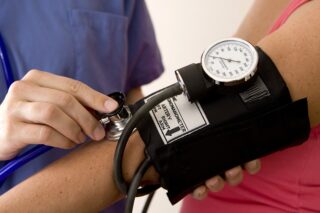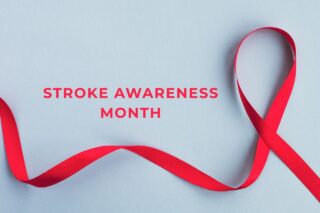
If you or a loved one have atrial fibrillation (AFib), it’s crucial to treat your condition in order to reduce your risk of stroke. Patients with AFib are more likely to develop blood clots, which can keep blood and oxygen from reaching vital organs like the brain. This can eventually be the cause of a stroke. Blood thinners are often prescribed to reduce blood clots in the body, thereby reducing a patient’s risk of stroke. While blood thinners are a common treatment option for AFib patients, they don’t work for everyone and there can be risks.
How Do Blood Thinners Prevent Stroke?
Blood thinners use an anticoagulant drug to help blood flow smoothly through veins and arteries. Blood thinners are often prescribed after a patient has suffered a stroke to prevent recurrent stroke. When a blood clot forms, a part of it can break off and become lodged into a blood vessel connected to the brain, resulting in a stroke. Blood thinners, when taken over time, can reduce clot formation and prevent large clots from breaking up inside the heart or brain.
Because AFib increases a person’s likelihood for developing stroke-inducing blood clots, many AFib patients are prescribed to be on blood thinners for life to reduce their risk. While blood thinners can help prevent stroke, they don’t work for all patients and can cause life-threatening side effects.
Common Blood Thinners and Their Side Effects
All blood thinners should be taken in specific situations under doctor supervision. Long-term use of blood thinners can cause serious side effects like internal bleeding in the colon or stomach. Tell your doctor if you notice any side effects such as bleeding gums, long nosebleeds, skin rashes, or hair loss.
Warfarin, one of the most common blood thinners, limits the amount of vitamin K produced in the liver, which in time would cause blood to clot. Aspirin is the only over-the-counter blood thinner on the market.
Aspirin works to stop cells from aggregating to heal a wound and form a clot. This option will not work for many AFib patients, because it won’t help with “prophylactic treatment” to prevent blood clots from forming before you have a stroke. However, it can be effective for secondary stroke prevention.
There are new blood thinner options available, such as Plavix and Eliquis. Plavix alters platelet activity and is recommended for stroke prevention, but harbors side effects such as bleeding, low white blood cell count, and thrombotic thrombocytopenic purpura, which causes tiny blood clots. Eliquis is an approved stroke prevention method for those who have AFib that is not related to a heart valve problem.
Blood thinners can help prevent stroke in many cases, but more and more patients are seeking alternative treatment options, like catheter ablation and the WATCHMAN, to treat their AFib and help reduce the risk of recurrent stroke.
Stroke Prevention Alternatives to Blood Thinners
Blood thinners do not work for all patients. Luckily, there are effective alternative treatments for AFib and stroke prevention. Your doctor can help you find the right treatment plan that works for you. The key to preventing recurrent stroke is finding the right AFib treatment.
A great treatment option for AFib that can help prevent stroke is catheter ablation. Catheter ablation typically has a higher success rate than medication alone, meaning there is less risk of symptoms returning. There is also a low risk of complications and a quick recovery time.
The WATCHMAN device has emerged as a life-changing option for many people who seek an alternative to drug treatment therapy. The WATCHMAN device conforms to the left atrial appendage of the heart to reduce the risk for blood clots. The device works best for patients with non-valvular AFib and is designed for those seeking a long-term solution without having to rely on drugs.
Preventing stroke depends on consulting your doctor to find the right treatment option for you. While some with AFib find success using blood thinners to prevent stroke, catheter ablation and the WATCHMAN device can provide greater results with fewer side effects. If you are seeking an ablation procedure for AFib, schedule an appointment with the electrophysiologists at Heart Rhythm Consultants.



